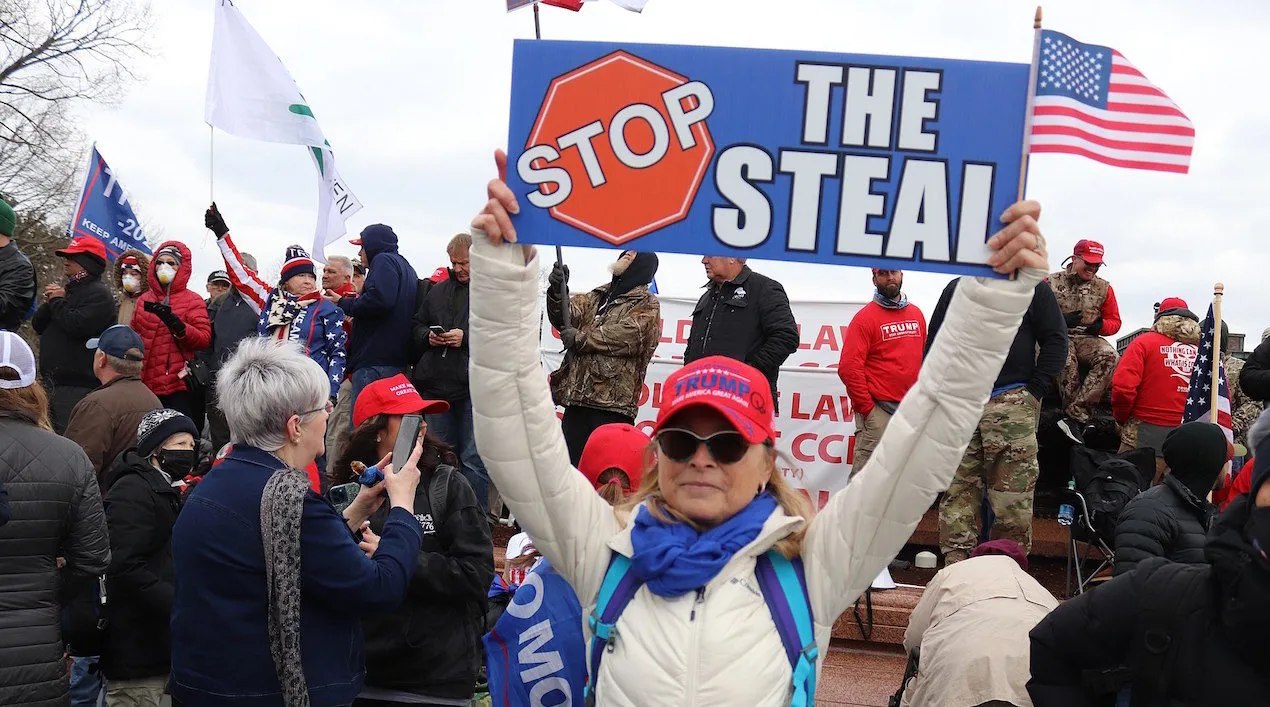The Big Lie
I should probably content myself with the very sage observation made by my younger brother:
“Humans. You can’t explain ‘em.”

It reminds me of the statement so often heard after a mass shooting: “A motive has not yet been determined.” Maybe that’s all one can say. Some things are inexplicable. Just let it go. But I seem constitutionally unable to stop pondering the imponderable.
In a way, non-sense fascinates me, whether it’s flat-Earthers, Holocaust deniers, 9/11 truthers, Sandy Hook conspirators, Jan. 6 minimizers, etc. I’ve often wondered what I’d find if I got to the bottom of these conspiracy rabbit holes. But I’ve never prioritized going there, reckoning that it would branch out into so many side burrows I’d get totally lost. I’m already directionally challenged.
But there is one rabbit hole that keeps calling my name. It’s the Big Lie, currently embraced by those who believe the 2020 US presidential election was stolen. If there were just a few folks who held this belief, I’d just shrug it off. I mean, who really gets concerned about the small burrow of those few who believe the US Apollo moon landing was fake, even in the face of no evidence, or a single credible whistleblower among the 400,000 people involved in the project? Whatever. To each his own.
But the Big Steal Rabbit Hole of alleged election fraud seems cavernous in comparison, populated by a huge colony. The Atlantic reports that 35 percent of Americans, including 68 percent of Republicans, believe The Big Lie. Really?
Since fair and trustworthy elections are at the very core of democracy, this rabbit hole looms large and ominous, like a groundhog hole in which a horse could break its leg. Or a hole so large it might swallow up an entire horse. I just can’t look away.
So now the Big Lie and the Big Steal take up more real estate in my brain than I would ever have imagined. I started by looking up “Big Lie” on Wikipedia, which recounts how Nazi propagandists early on understood that if you tell a big enough whopper, and repeat it often enough, it will seep into the minds of a public who assumes that “no one could ever get away with telling a lie that big, so it must be true.” It’s a fascinating read. I highly recommend it for anyone open to lessons from the past.
Then I started digging deeper. Finding nuggets here and there, I finally uncovered what for me was the mother lode in an Oct. 22, 2022 article by Rand Engel titled “The 2020 Election Wasn’t Stolen: All the Key Facts Debunking the Big Lie.” Here in 17 key points is a definitive summary of the facts (and “alternate facts”) one would need to believe (or disbelieve) about election fraud.
I won’t bore you with summary of all this, but instead point you to the link itself: The 2020 Election Wasn’t Stolen: All The Key Facts Debunking The Big Lie. The title reveals the author’s bias, but whether you read his assessment to debunk or to defend, it’s a valuable resource laying out issues a thinking person would consider.
But as The Atlantic article points out, “for many Trump voters, the belief that the election was stolen is not a fully formed thought. It’s more of an attitude, or a tribal pose.” As such, belief in the Big Lie cannot be refuted by facts if your tribe embraces “alternate facts.” (Remember when Kellyanne Conway coined that term while she was a counselor to the former president?)
Nevertheless, “the facts speak for themselves.” Hopefully enough voters are listening.
Dad's short bio goes here.